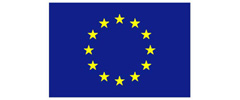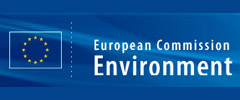Eco-Sanitation, water pollution, poverty and waste burning
Final Evaluation Report of the MATRA project in Romania carried out by WECF and Medium&Sanitas
13.09.2004 |Sascha Gabizon

- Toilet house of the school, Festive opening and last improvements made
- Three articles, in main Romanian newspaper and 2 international magazines, published
- Educational materials translated into Roma Language
- Three wells cleaned by the new mayor of Garla Mare
- Water filters installed in the dispensary
- Women’s club working on registration as environmental association and finds ‘office’
- 28 Garla Mare villagers visit organic farm near Sibiu
- Five Garla Mare farmers visit an organic farm fair in Nuernberg, Germany
- Organic farming consultant/importer visits Garla Mare
- University takes samples of urine for control of quality
- First tests with eco-san products in home farming
- Preparations for participation in WECF conference Budapest June 2004
- Two publications on the eco-san project
- 100 meter deep drink-water well was drilled in
Slobozia. As the expert study and the public event had identified,
Slobozia most needed a ‘second leg’ to assure it’s drinking water
supply. This second leg is ground water to complement the existing
supply from the Danube river.
This project was designed to address drinking water quality improvement, however, during the project, 2 major problems where identified, which WECF wants to bring to the attention of policy makers in Romania and abroad, namely the need to urgently address growing poverty and consequent malnutrition among children, as well as, burning of plastic waste in home ovens due to lack of waste treatment, increased poverty and lack of information about health dangers.s
1. Children who suffer from hunger – should be a priority issue to address
WECF and M&S had underestimated the great and growing gap, which exists between the rural and urban areas in Romania. In addition, the rural areas are impoverishing rapidly. We had not expected to find children who are regularly hungry because their parents can not give them more than 1 meagre meal a day, as we did in Garla Mare.
A further real problem is the lack of awareness on environmental and health issues, which is leading to dangerous situations for the local people’s health. For example, we found out that all families in Garla Mare use their plastic waste to light their ovens and stoves. When asking them, they were all unaware of the dangers of this practice. Plastic bags, as on this photo, are rolled up and used to light fires. It’s an easy way to get rid of the waste and some plastics burn very well. The problem is that almost all those plastic bags contain chlorine compounds, like PVC. When such bags are burned this generates dioxins. Dioxins are the most toxic to the human organisms. They are carcinogenic and a hormone disruptor and persistent, and they accumulate in our body-fat and thus mothers give it directly to their babies via the placenta.
During our stay in Garla Mare, many ideas came how to address this most pressing issue, which is even more pressing then polluted drinking water. These are our recommendations, to MATRA and the Romanian Government:
Recommendations to stop children suffering from hunger:
• Change the social welfare system for rural areas. Currently each mayor of a village receives money to give to the poor people. However, this money is given to the head of the family, who are mostly men. Often, the men will use part of the money for buying alcohol. Not only is alcoholism a main reason for the high level of domestic violence against women and children, it also means that then too little money is left over to feed the family. Therefore, other ways should be developed to make sure that the money is spend on the basic needs of the family, in particular the children. One way through which this could be done is that not all the money is given to the families in cash, but instead, a ‘gaar keuken’ – a poor people kitchen is created, where these families come and eat every day, so that at least no children need so suffer from hunger any longer. Hunger is also a main reason why many children, in particular Roma children, do not attend school regularly. Women of the poor families could be employed in these poor people’s ktichen’s, so that they can earn a little bit of money and are not completely dependent on their husbands for money to buy food and clothes for their children. In addition such a place could be used for education and raising awareness. This recommendation aims the Romanian government, but also at MATRA who could well support a trial project in this area.
• Focus on rural development. In former times the state invested in the rural areas to help employment creation, this is hardly the case anymore. Basic infrastructure is deteriorating, basic services are deteriorating (e.g. the mayor of Garla Mare had not been able to get wood to heat the schools, children were in the classroom with coats, hats and gloves, which is not a stimulating educational environment) and despite the land-reform, capital is concentrating fast in the hands of a few, leaving the majority of the population in a state of increasing poverty. The MATRA programme could give preferential support to projects that focus on rural development in an integrated way. However, since most people in rural areas are farmers, this should also allow the inclusion of developing agricultural employment creation, and not limit this to large projects by other programmes such as PSO.
2. Recommendations to stop indoor plastic waste burning
• the ministry of health of Romania should inform their people – doctors, nurses, teachers, local administrators and the general public - about the health dangers of burning plastic waste. People in Romania seem to have NO idea about the dangers of burning plastic waste!! They should be informed urgently! The MATRA programme might want to promote projects of citizen’s initiatives in this area.
• the ministry of natural resources should develop a phase-out plan for PVC packaging and all chlorinated plastic and promote less dangerous types of plastic but in particular, promote re-usable packaging such as glass and paper, by using market instruments such as deposit schemes and taxes on one-way packaging. The MATRA programme might want to support citizen’s initiatives in this area.
To find out more about the project conclusion download the full version of the Report here (doc.).


































